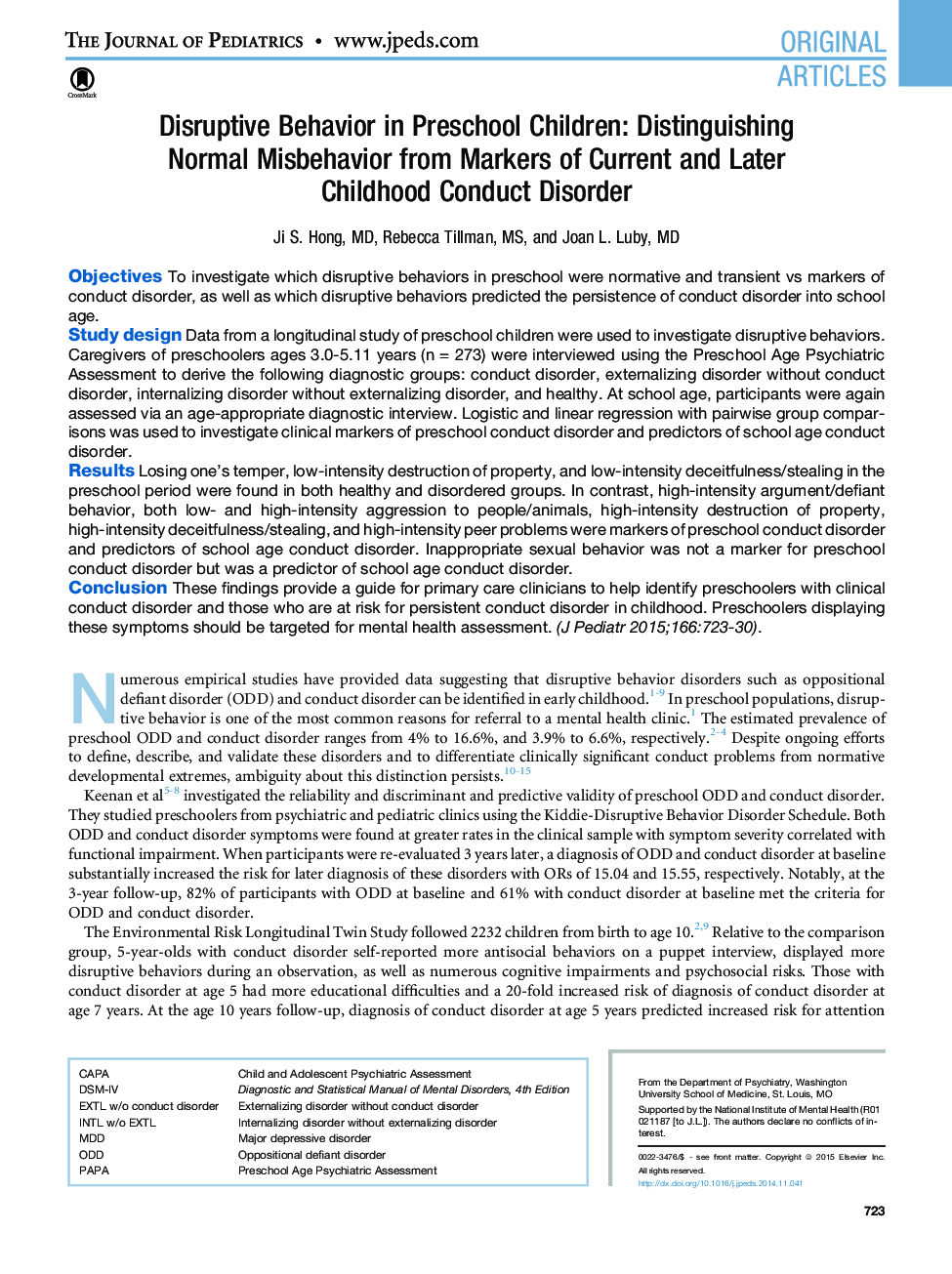| Article ID | Journal | Published Year | Pages | File Type |
|---|---|---|---|---|
| 6221347 | The Journal of Pediatrics | 2015 | 9 Pages |
ObjectivesTo investigate which disruptive behaviors in preschool were normative and transient vs markers of conduct disorder, as well as which disruptive behaviors predicted the persistence of conduct disorder into school age.Study designData from a longitudinal study of preschool children were used to investigate disruptive behaviors. Caregivers of preschoolers ages 3.0-5.11 years (n = 273) were interviewed using the Preschool Age Psychiatric Assessment to derive the following diagnostic groups: conduct disorder, externalizing disorder without conduct disorder, internalizing disorder without externalizing disorder, and healthy. At school age, participants were again assessed via an age-appropriate diagnostic interview. Logistic and linear regression with pairwise group comparisons was used to investigate clinical markers of preschool conduct disorder and predictors of school age conduct disorder.ResultsLosing one's temper, low-intensity destruction of property, and low-intensity deceitfulness/stealing in the preschool period were found in both healthy and disordered groups. In contrast, high-intensity argument/defiant behavior, both low- and high-intensity aggression to people/animals, high-intensity destruction of property, high-intensity deceitfulness/stealing, and high-intensity peer problems were markers of preschool conduct disorder and predictors of school age conduct disorder. Inappropriate sexual behavior was not a marker for preschool conduct disorder but was a predictor of school age conduct disorder.ConclusionThese findings provide a guide for primary care clinicians to help identify preschoolers with clinical conduct disorder and those who are at risk for persistent conduct disorder in childhood. Preschoolers displaying these symptoms should be targeted for mental health assessment.
